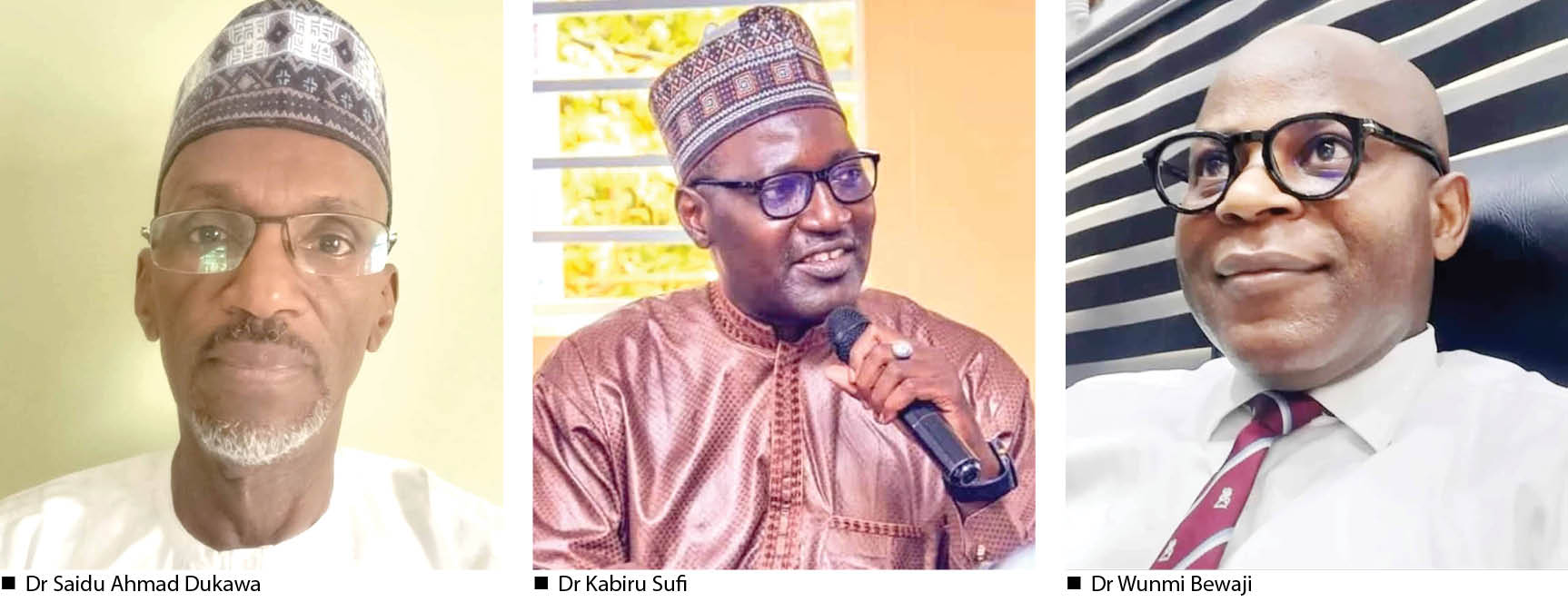Way forward, by political scientists
Experts on political affairs have also weighed in on the matter. A lecturer at the Department of Political Science, Bayero University Kano, Dr Saidu Ahmad Dukawa, argued that achieving full local government autonomy would require having democratically elected officers who come in through a process which is free, fair and credible. He, however, said the […]

Experts on political affairs have also weighed in on the matter.
A lecturer at the Department of Political Science, Bayero University Kano, Dr Saidu Ahmad Dukawa, argued that achieving full local government autonomy would require having democratically elected officers who come in through a process which is free, fair and credible. He, however, said the attitude of the Nigerian political elite is a big problem.
“If, on one hand, states electoral commissions conduct the elections, state governors will continue to manipulate the process. If, on the other hand, a central electoral commission (under whatever nomenclature) is to conduct the elections, the federal government may manipulate the process.
“So a lot needs to be done to actualise a free and fair local government election. This will include wide stakeholders’ involvement and participation.
“Cooperation of state governors and patriotism on the part of the local government authorities is necessary,” Dr Dukawa said.
Dr Kabiru Sufi, a lecturer at the Kano State College of Arts, Science and Remedial Studies (CAS) also spoke on the matter.
He said, “I think the independence of local government councils can be better safeguarded and guaranteed if either the Independent National Electoral Commission (INEC) or the proposed NILGEC handles the election. This is with a view to ensuring transparency and credibility.”
He said taking the duty off the State Independent Electoral Commission would ease the financial burden of organising the election on states.
Abdulrazaq Alkali, a civic education advocate, highlighted the enormity of logistical and security challenges in conducting councils election in 774 local government areas if the burden is placed on INEC.
Instead, Alkali said it would be better if the states’ electoral commission can be improved upon in such a way that there is no interference from state governments.
“I am concerned about the federal government taking over local government election because even the process for appointing commissioners for the commission in charge of organising the election may be partisan. People of questionable characters or people who are affiliated to political parties could be appointed and that can affect the process and outcomes,” he said.
On his part, the Executive Secretary, Coalition of Democrats for Electoral Reform (CODER), Dr Wunmi Bewaji, said though “the local government elections have been a charade in Nigeria since 1999 and a sheer waste of time and resources because of the highhandedness of governors”, handing over the conduct of the polls to the INEC is like scratching the problem in the face. He said it would destroy what is remaining of the country’s federal structure.
He said the clamour for INEC to take over the task is borne out of ignorance, because Nigeria is a federation.
“It is not just a federation in name, it is written in our constitution right from 1960 and it is not just by accident that we are called the Federal Republic of Nigeria. And from 1960, the constitution has been defining the parties to that federation and that is the federal government and the states.
“In the 1960 Constitution, it was the federal level and the region. So when you look at Section Two (1) of our Constitution, it says that Nigeria is an indivisible, indissoluble sovereign state to be known as the Federal Republic of Nigeria and that is the federation that we have.
“It is a marriage between the federal and the federating units and the federating units in Nigeria are the federal government and the states under the 1999 Constitution. In other words, the third tier of government is an aberration, it is unknown to law.
“The solution is to restructure Nigeria. The states that we have are glorified local governments. We need a viable sub-national structure where the issue of local governments should be completely eradicated from our federal constitution. There is no federation in the whole world that has local government being written into its laws. So we need to restructure the country to have a viable sub-national government structure, whereby, maybe we can have regions, geopolitical zones, whatever name we want to call it, then with sub-divisions. It will then be left entirely to that entity. If for example, you have a North-Central region or geopolitical zone, then that entity can decide the number of sub-units it wants and the number of sub-units it can finance. You don’t have to call it local government, each geopolitical entity can decide the number that is viable and it wants to sub-divide itself into; that is the way to go,” he said.
He further stated, “The Attorney-General went to the Supreme Court that the money should be paid into local government directly; if money is paid directly into local government, what did the judgement say about expenditure? The judgement only talks about the revenue; it never said anything about how the money would be spent. The money can go directly into the coffers of local governments but the governors can say this is how we are going to spend the money and that would rubbish whatever the federal government wants to achieve by going to the Supreme Court.
“There is no way the SIEC can continue to conduct the elections because all members of the State Independent Electoral Commission are appointed by the governors and in most cases 99 per cent of them are either party members or personal friends of the governors. So there is no way.
“Allowing the INEC to conduct the election will make a difference, but it is not the solution”, he said.
